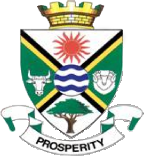Related Research Articles

William Henry Andrews, commonly known as Bill Andrews, was the first chairman of the South African Labour Party (SALP) and the first General Secretary of the Communist Party of South Africa. He was also active in the formation of the Industrial and Commercial Workers' Union.
Elizabeth "Nanna" Abrahams was a South African political activist and trade unionist who participated actively in the struggle against apartheid. Born in the Paarl Valley area of Western Cape Province, South Africa, Liz, as she was affectionately called, became General Secretary of the Food and Canning Workers Union (FCWU) in 1956, a duty she performed until 1964. Her commitment to the struggle brought her close to activists including Elizabeth Mafikeng, Archie Sibeko, Oscar Mpetha and Ray Alexander. She was in 1986 detained for police questioning and subsequently detained for almost three months without trial. After her retirement, Abrahams remained actively involved in the Food and Allied Workers Union (FAWU), and was in 1995, a year after South Africa's first democratic elections, invited to serve as a Member of Parliament. During the last years of her life, Abrahams received several awards for her contributions to the liberation movement and for her activities on behalf of the rights of the working class.

Archibald "Archie" Mncedisi Sibeko was a South African anti-apartheid activist, trade unionist and political leader.

Gamagara Local Municipality is an administrative area in the John Taolo Gaetsewe District of the Northern Cape in South Africa.

Joe Morolong Local Municipality is an administrative area in the John Taolo Gaetsewe District of the Northern Cape in South Africa.

Ga-Segonyana Local Municipality is an administrative area in the John Taolo Gaetsewe District of the Northern Cape in South Africa.
Toto Makgolokwe was the paramount chief (kgosi) of the Batlharo tribe of South Africa, dubbed the Freedom Warrior and an icon of the land whose resistance to colonization galvanized the freedom struggle. In 1897, he became the hero of The Langeberg Rebellion (1896–97) after defeating the British military. The British subsequently brought in reinforcements which defeated the Batlharo and captured both Makgolokwe and Kgosi Galeshewe. Kgosi Toto's eldest son Robanyane Toto was also arrested with him at Robben Island.
The Northern Cape province of South Africa is governed in a parliamentary system in which the people elect the provincial legislature and the legislature, in turn, elects the Premier as head of the executive. The Premier leads an Executive Council consisting of members who oversee various executive departments. The structure of the provincial government is defined by chapter six of the Constitution of South Africa.
Cassel is a village near Kuruman, in John Taolo Gaetsewe District Municipality in the Northern Cape province of South Africa.
The South African Railways and Harbours Administration (SAR&H) was established on 31 May 1910 with formation of the Union of South Africa by the amalgamation of the four colonial railways and all harbours in South Africa - about 11,000 kilometres of track. It would manage road transport and pipelines in South Africa. It also managed South African Airways from 1934 to 1997. It was reorganised and renamed in 1981 as the South African Transport Services (SATS). In 1990 it became Transnet.
The South African Industrial Federation (SAIF) was established in 1914 as an amalgamation of the Industrial Federations in the provinces of South Africa.
The South African Trades Union Congress (TUC) was a national trade union federation in South Africa.
The Federation of Non-European Trade Unions was a trade union federation formed in South Africa in 1928.
Die Spoorbond was an Afrikaner railway trade-union formed in 1934 by H. J. Klopper, founder of the Afrikaner Broederbond, which advocated a policy of replacing all black railway-workers with Afrikaners. It rejected strikes and called instead for loyal service to the South African Railways and Harbours Administration (SARHA). The union had a membership of some 16,000 in the 1930s, considerably more than that of its rival, the National Union of Railway and Harbour Servants, which was forced to dissolve in 1937.
The South African Railways and Harbours Union was formed by black workers of the South African Railways and Harbours Administration after they had been expelled from the National Union of Railway and Harbour Servants.
The Cape Town Stevedoring Workers Union was a South African Trades Union.
The Council of Non-European Trade Unions (CNETU) was a national trade union federation bringing together unions representing black workers in South Africa.
The South African Congress of Trade Unions (SACTU) was a national trade union federation in South Africa.
The Food and Canning Workers' Union (FCWU) was a trade union representing food processing workers in South Africa. Its members were mainly based in the Western and Eastern Cape. It was affiliate with the African Food and Canning Workers' Union (AFCWU).
The Black Trade Union of Transnet Workers (BLATU) was a Company union set up by the South African Railways and Harbours Administration in 1981. In 1982 it claimed a membership of 60,000, out of 95,000 black employees. Union dues were collected by the company, whose supervisors selected the officials. It was intended to supplant the South African Railways and Harbours Union (SARHWU).
References
- ↑ Kiloh, Margaret; Sibeko, Archie (2000). A Fighting Union. Randburg: Ravan Press. p. 75. ISBN 0869755277.
- ↑ "John Taolo Gaetsewe". South African History. Retrieved 26 January 2016.